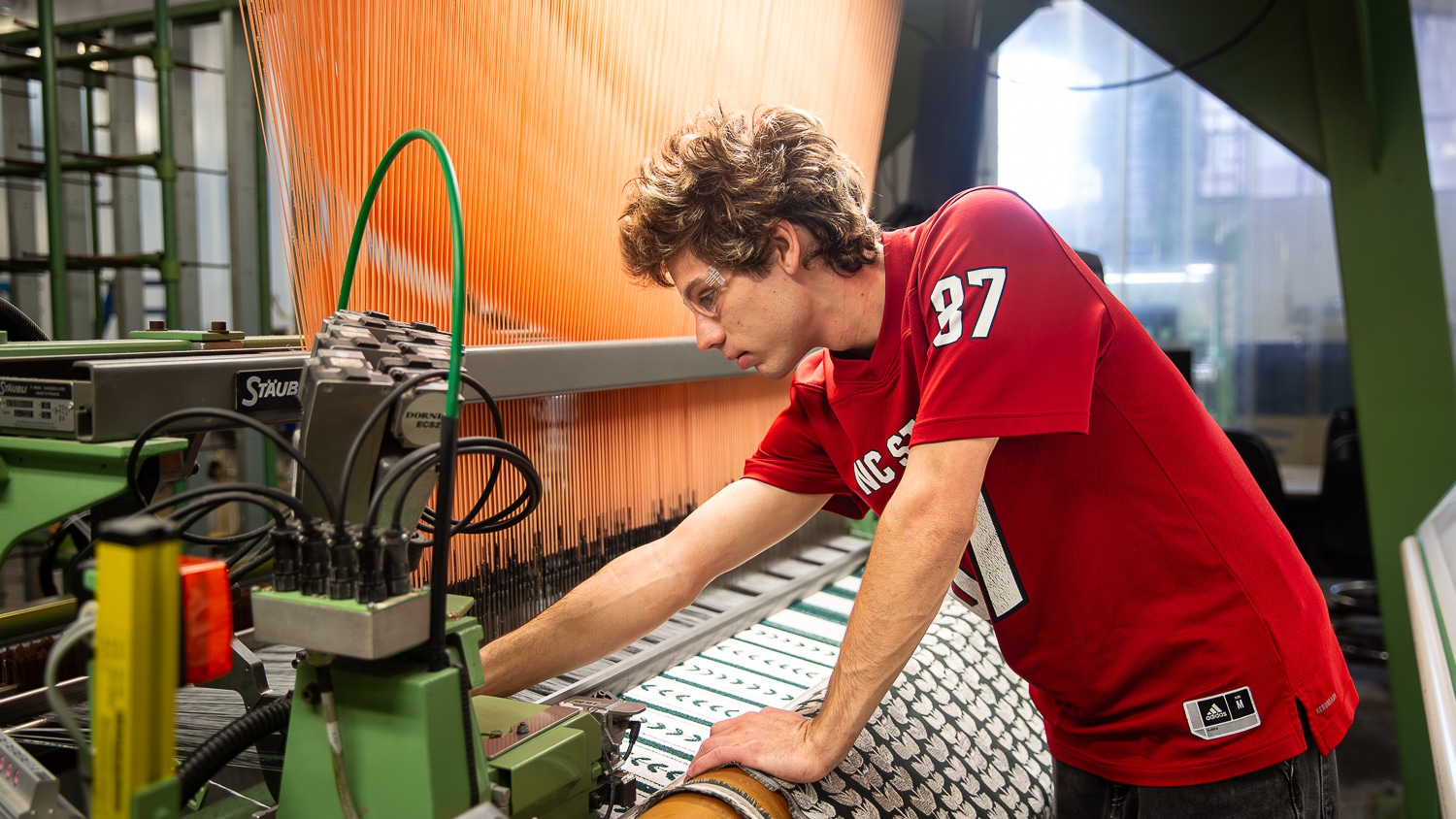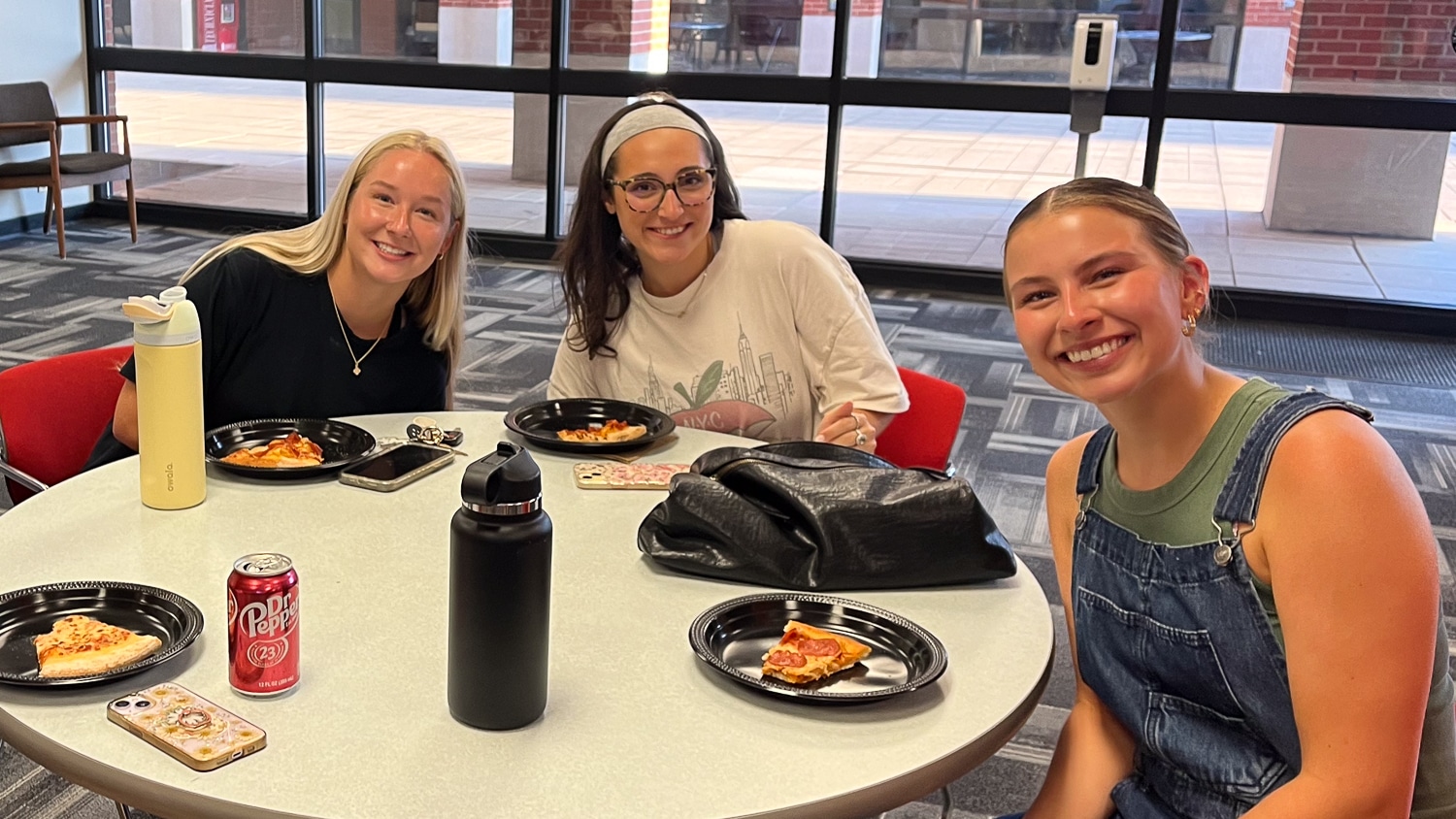Chandler Probert: Finding Opportunities Outside the Lab

By Debbie Willmschen
When Chandler Probert stepped onto the red bricks at NC State University, he knew he wanted to find new ways to explore opportunities. Probert earned his bachelor’s degree in polymer and color chemistry and then his master’s degree in textile engineering in the Wilson College of Textiles, where he discovered a passion for research. Now, Probert continues to look for methods to put his knowledge into action as he pursues his doctoral degree in fiber and polymer science (FPS) at Wilson College.
Probert’s research for his master’s dissertation centered on cleaning efficiencies for firefighter turnout gear — the personal protective garments and equipment worn by firefighters. Studies established a link between firefighting and cancer, which has increased the awareness of the chemical hazards within the fire-service industry.
In his doctoral program, Probert is taking his research a step further. He is examining the dermal exposure of firefighters and other first responders to particulate matter and frequently found toxic chemicals present at fire scenes. He is also investigating the effectiveness and usefulness of decontamination wipes to potentially remove these toxic chemicals from the skin.
As part of his research, Probert is working closely with the Cary, N.C and Raleigh, N.C. fire departments, going into the field to gather data. “I’m hopeful that I can help first responders implement a better process to make sure they can come home safely at the end of their shift but, more importantly, at the end of their career,” said Probert. “It’s rewarding when you put faces to the people who do the job; this group is passionate about their work and helpful with anything I need for my research.”
Probert credits his adviser, Assistant Professor Bryan Ormond, for introducing him to the concepts of personal protective equipment and protective textiles during his undergraduate time as a research lab assistant. Ormond specializes in fiber and polymer science and encouraged Probert to continue his education through graduate school and then the doctoral program at Wilson College.
“Dr. Ormond is patient and takes the time to explain things in a way that I can understand,” said Probert. “He always makes time for me.”
“Neither Chandler or I realized back in his freshman year that we would be working together for the better part of the next decade,” said Ormond. “One of the most rewarding parts about being a professor is working with students from their first days on campus all the way through their academic careers and seeing them grow and develop into independent researchers. When you work with someone that long, it is hard not to be proud when they mature into the next generation’s leaders inside and outside of the laboratory.”
Probert has found other opportunities to engage beyond his lab research at Wilson College. From his own undergraduate and graduate experiences, he understands the challenges students face in starting a graduate program, regardless of whether they have funding.
“After I started the FPS doctoral program, I decided that I wanted to be more involved in the decision-making process within Wilson College,” said Probert. “And I wanted to advocate for graduate students, particularly as the entire journey can be stressful.”
As president of the Textile Association of Graduate Students, better known as TAGS, Probert discovered that he could be involved in the process and in the development of new or improved initiatives. “My hope is that we can create new opportunities for networking and long-lasting traditions for future graduate students,” Probert said.
After earning his doctorate, Probert hopes to find work outside of academia. “I would be happy working anywhere that allows me to advance the field of environmental health and safety,” he said.
In addition, Probert recognizes that preventive measures are often more effective than reactive measures, especially in the realm of environmental regulations. “Being a North Carolina native and with recent news stories regarding per- and polyfluoroalkyl substances, I have kept a close eye on the effects of the high levels of contaminants in the water supply caused by pollution from chemical plants,” explained Probert. “I’d like to educate people about the effects of water downstream so that they understand that chemicals move down the river; they affect everyone who lives on the river and relies on that water source.”
Although lab research takes up a large portion of his time, Probert enjoys the opportunity to work with first responders and is grateful that his research has implications beyond the lab. “I’m excited to focus on a research topic that is all my own,” said Probert. “Most importantly, I’m glad that my research challenges me to think critically, experiment with new methodology and help those who serve their communities.”
- Categories:


